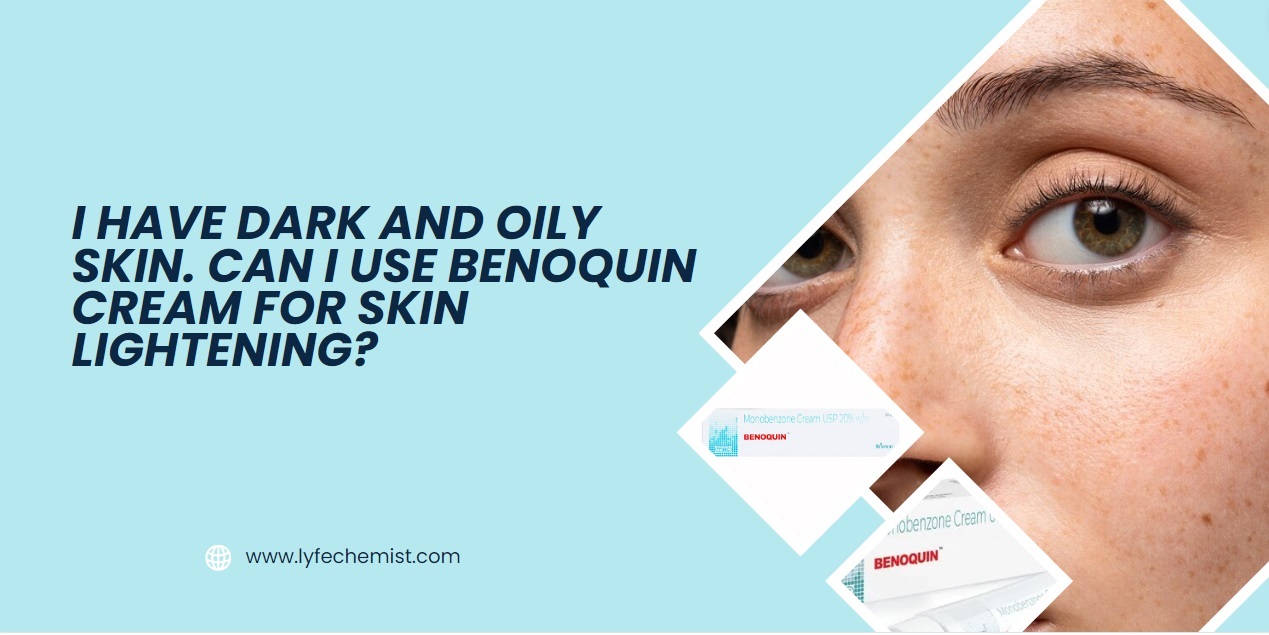When it comes to skincare, everyone’s journey is unique, and finding the right solutions for individual skin concerns can be a bit challenging. One common question that often arises among people with dark and oily skin is whether Benoquin cream, which contains the active ingredient monobenzone, can be used for skin lightening. Let’s delve into this topic and explore whether Benoquin cream is a suitable option for those with dark and oily skin.
Understanding Benoquin Cream
Benoquin cream is primarily known for its use in treating vitiligo, a skin condition characterized by white patches due to loss of pigment. The cream works by inhibiting the activity of melanocytes, the cells responsible for producing melanin, the pigment that gives skin its color. This action leads to permanent lightening of the skin surrounding the affected areas, helping to blend the white patches with the surrounding skin.
Dark and Oily Skin Concerns
Dark and oily skin often has higher levels of melanin, which provides natural protection against sun damage but can also lead to hyperpigmentation and uneven skin tone. Oily skin is also prone to acne and clogged pores due to excess sebum production. Given these concerns, using skin-lightening products like Benoquin cream requires careful consideration and consultation with a dermatologist.
Is Benoquin Cream Suitable for Dark and Oily Skin?
While Benoquin cream can lighten the skin, its use in individuals with dark and oily skin should be approached with caution. Here’s why:
- Risk of Uneven Lightening: Darker skin tones may respond unevenly to skin-lightening treatments, leading to patchy or blotchy results. This can result in an unnatural appearance, which is often more noticeable on darker skin.
- Potential for Skin Irritation: Oily skin is more prone to acne and irritation. Using Benoquin cream without proper guidance can exacerbate these issues, leading to breakouts or skin inflammation.
- Sun Sensitivity: Skin lightening can increase sensitivity to the sun. Darker skin already has some natural protection against UV rays due to higher melanin levels. Lightening the skin further can reduce this protection, making it more susceptible to sunburn and sun damage.
Precautions and Recommendations
If you’re considering using Benoquin cream for skin lightening, especially with dark and oily skin, here are some precautions and recommendations to keep in mind:
- Consult a Dermatologist: Before starting any skin-lightening treatment, consult with a dermatologist or skin care specialist. They can assess your skin type, discuss your concerns, and recommend the best course of action tailored to your needs.
- Patch Test: Before applying Benoquin cream to larger areas of your skin, perform a patch test to check for any adverse reactions or sensitivity.
- Follow Instructions Carefully: Always use Benoquin cream as directed by your healthcare provider. Avoid over-application and adhere to the recommended usage frequency to minimize the risk of side effects.
- Sun Protection: Use sunscreen daily, even on cloudy days, to protect your skin from UV damage. Choose a broad-spectrum sunscreen with an SPF of 30 or higher and reapply as needed throughout the day.
- Moisturize: Oily skin still needs hydration. Use a non-comedogenic moisturizer to keep your skin hydrated without clogging pores.
Conclusion
While Benoquin cream can lighten the skin, its use in individuals with dark and oily skin requires careful consideration and professional guidance. Consulting with a dermatologist can help you determine whether Benoquin cream is a suitable option for your skin-lightening goals and provide personalized recommendations to achieve the desired results safely and effectively.
Remember, every skin is unique, and what works for one person may not necessarily work for another. Prioritize your skin’s health and seek professional advice to make informed decisions about your skincare journey







Write a comment
Your email address will not be published. All fields are required